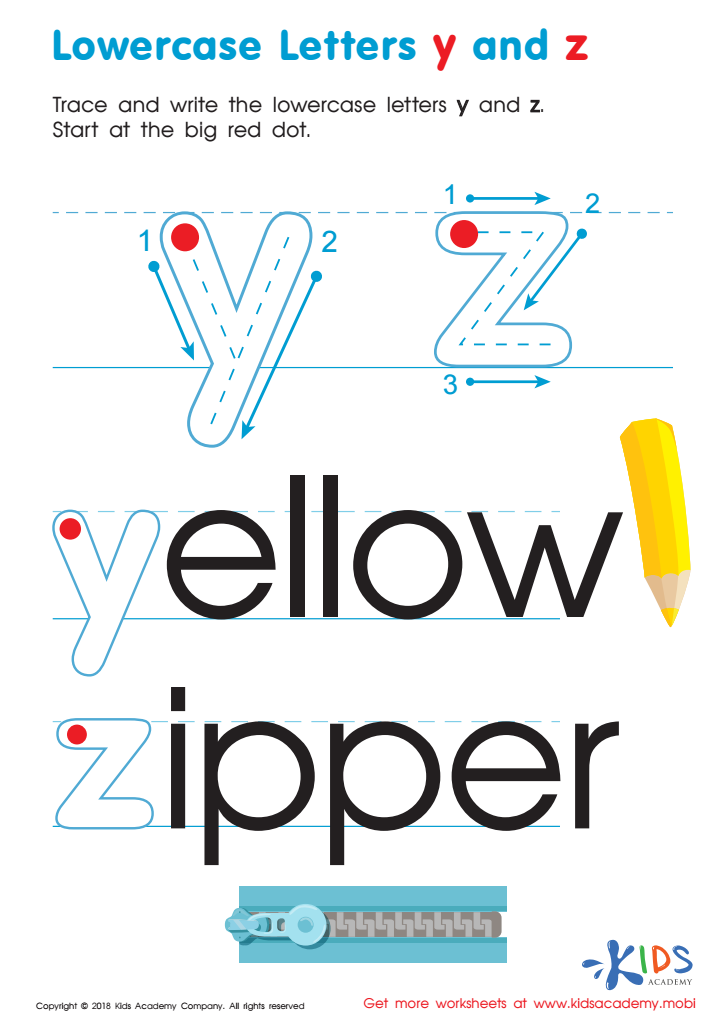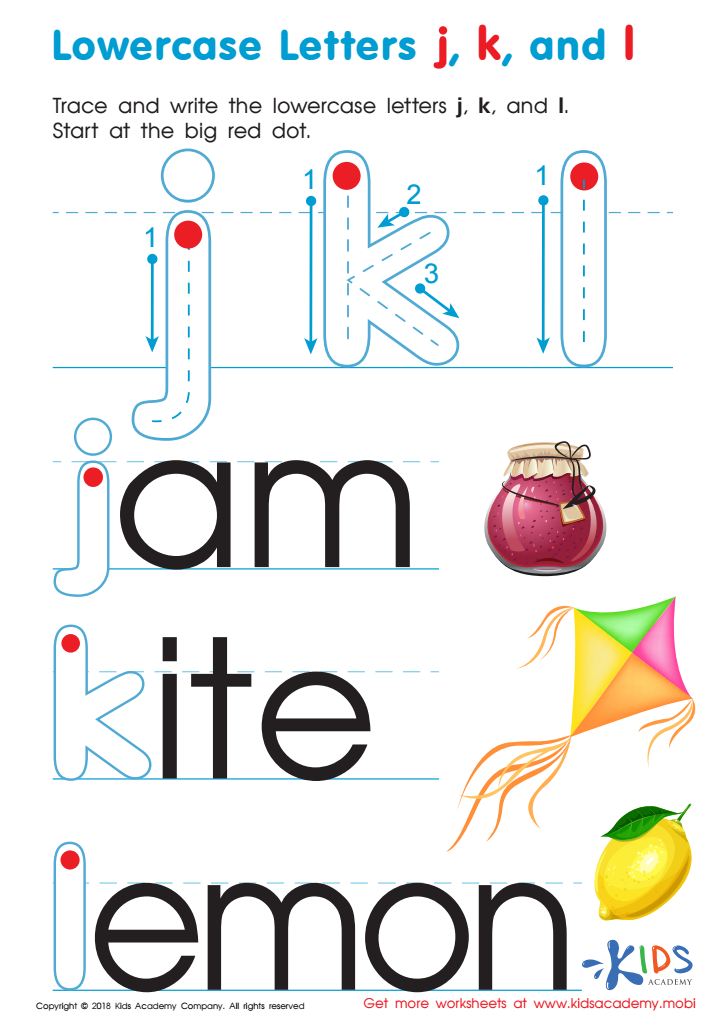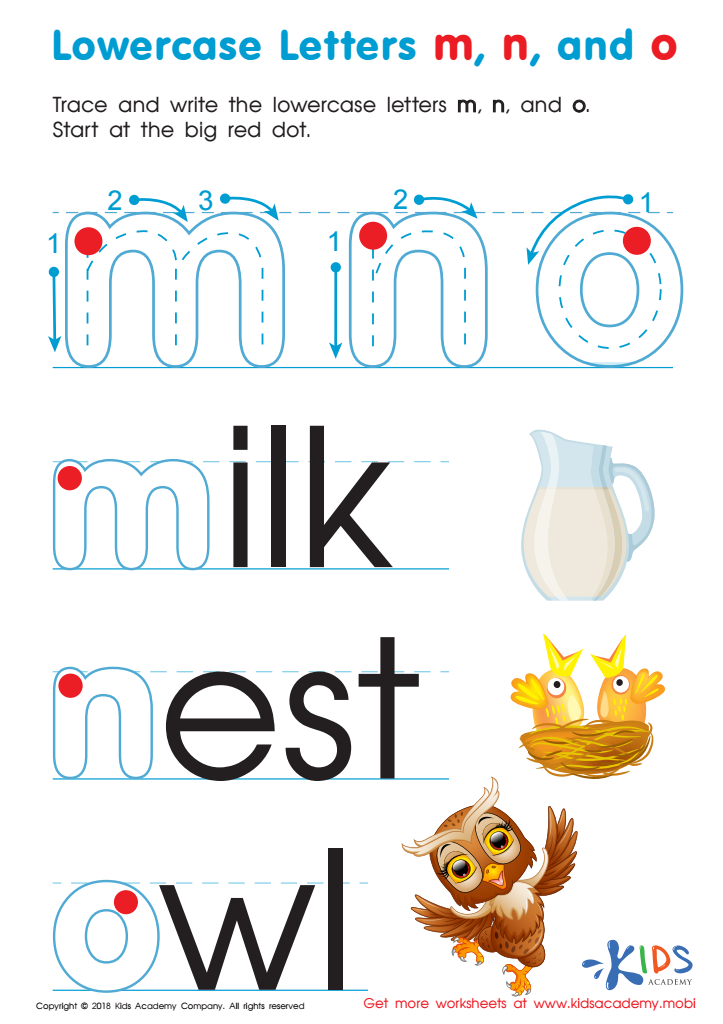Lowercase letter writing Normal Letter Recognition Worksheets for Ages 4-7
3 filtered results
-
From - To
Enhance your child’s literacy skills with our Lowercase Letter Writing Normal Letter Recognition Worksheets, specially designed for ages 4-7. These engaging, printable worksheets promote letter recognition while developing fine motor skills. Each worksheet contains traceable letter patterns and fun activities to reinforce learning. Perfect for early learners, these exercises make mastering lowercase letters enjoyable and engaging. Boost your child’s confidence and lay a solid foundation for reading and writing. Discover a captivating way to teach lowercase letter recognition with our expertly crafted educational resources. Download now from Kids Academy to make early literacy learning both effective and fun!


Lowercase Letters y z Worksheet


Lowercase Letters j k l Worksheet


Lowercase Letters m n o Worksheet
For children ages 4-7, mastering lowercase letter writing and normal letter recognition is a cornerstone of their early literacy development. This foundational skill set forms the basis upon which all subsequent reading and writing abilities are built. Parents and teachers who emphasize these skills provide children with critical tools that pave the way for future academic success.
Lowercase letters comprise the majority of written text, making proficiency in their recognition and writing essential for reading fluency. When children can effortlessly identify and reproduce these characters, they can focus more on understanding the material rather than decoding each word. Furthermore, accurate and consistent letter formation aids in developing fine motor skills and hand-eye coordination, which are important for various other academic and everyday tasks.
Beyond academics, confidence in literacy skills reduces frustration and fosters a love for reading and learning. Early mastery of lowercase letters also promotes cognitive benefits, such as improved memory, attention to detail, and critical thinking. In a classroom setting, this foundational knowledge equips children to participate more effectively, thereby enhancing their overall educational experience. By prioritizing these skills, parents and teachers set children on a path to greater self-assurance, academic achievement, and a lifelong engagement with the written word.
 Assign to My Students
Assign to My Students















